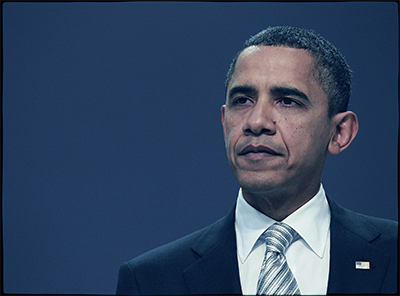
Last August, the Center for Immigration Studies exclusively published a three-page memorandum by former DHS Secretary Jeh Johnson, addressed to 10 of his top agency chiefs. It ordered a secret full-scale enforcement program to suppress "special interest alien" migration from the Middle East to the U.S. southern border through Latin America and highlighted its inherent potential for terrorist infiltration.
The Obama-era Democratic cabinet appointee's June 2016 order obviously demolishes a currently popular narrative on the political left that President Donald Trump's stated concerns about terrorist border infiltration are discreditable and isolated to fringe conspiracy theorists. Not exactly a fringe conspiracy kind of guy, Johnson wrote that special interest alien (SIA) migration from terrorism-spawning countries in the Middle East through Latin America to the southern border was an urgent national security threat, and on that basis, ordered a comprehensive intelligence and enforcement program to stop it.
Now, two powerful senators — Sen. Ted Cruz of Texas and Sen. Chuck Grassley of Iowa — are pressing the Trump administration to explain what ever became of the program it inherited from Johnson. In a February 19 letter to current DHS Secretary Kirstjen Nielsen, Acting U.S. Secretary of Defense Patrick Shanahan, and Secretary of State Mike Pompeo, among others, the senators asked for briefings on whether Venezuela's breakdown as a state might result in Hezbollah actors and Iranian intelligence officers entering established smuggling lanes to the southern border. (See my op-ed "Central American Countries Are Helping Middle Easterners Illegally Enter the United States").
The letter cited my CIS report "Terrorist Infiltration Threat at the Southwest Border" in its very first question: "How is the Trump administration improving upon the Obama administration's failed attempts to deter K/STs [Known or Suspected Terrorists] and SIAs [Special Interest Aliens], as well as their affiliate networks in Central America?"
The request and reference to the Obama administration's "failed attempts" mirrors the top recommendation in my November 2018 report, "Eight Recommendations to Congress and the White House to Counter Potential Terror Travel to the U.S. Southern Border".
In that report, I cited intelligence community sources "who have requested anonymity because they were not authorized to release it" as saying "the initiative is no longer active." I recommended that the White House resurrect the Obama counter-SIA initiative on its non-partisan merits because doing so would fix debilitating coordination problems with existing efforts among agencies such as U.S. Southern Command, the FBI, and DHS components. That report noted that Johnson's program was needed because otherwise "Agencies labor under an absence of consistent intelligence-sharing protocols, inconsistent country lists and term definitions, and shifting investigative vetting procedures and standards that reduce overall effectiveness."
The other questions that senators Cruz and Grassley ask of the Trump administration, beyond just Islamic terrorists who would enter posing as migrants, are good ones, too. The senators worry that clandestine intelligence agents of Cuba, Iran, Russia, and China might get in over the border during the Venezuela crisis. This concern is valid just on capability grounds; Iranians, for instance, can and do travel the migrant trails through Latin America on their way to the U.S. border, without identification and with unverifiable stories of persecution.
"The prospect of such bad actors in our hemisphere raises significant concerns about the safety and well-being of the American people," Cruz and Grassley wrote. "Should the US. Government not address these concerns head-on, it would be an absolute abdication of our primary responsibility to provide for the common defense."
They asked for a briefing from the administration on all of these questions no later than March 12.
